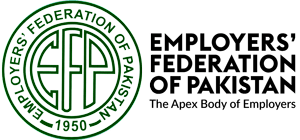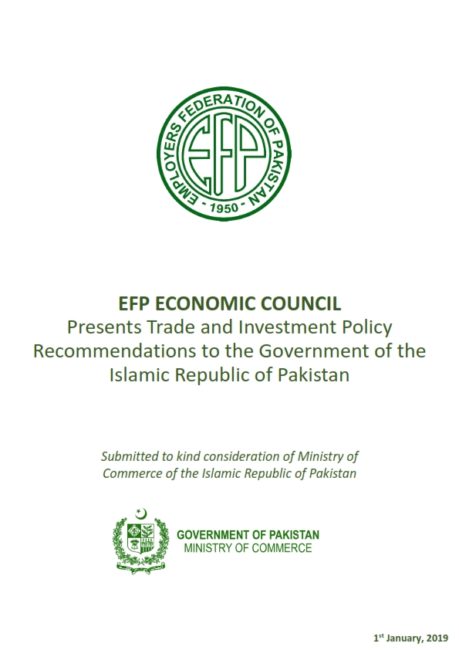Overview
TRADE AND INVESTMENT POLICY RECOMMENDATIONS TO THE GOVERNMENT OF PAKISTAN
With one third of the population of Pakistan living in multi-dimensional poverty, acute shortage of water and gas supplies, and a dwindling female worker participation level coupled with alarmingly low expenditure on human capital development, as well as frequent power outages, it is no surprise that competitiveness of Pakistani exports have eroded. The administration is faced with tough macroeconomic challenges, such as a bloated balance of trade deficit, declining foreign reserves and rising unemployment rate.
To prove its unwavering commitment to uplifting the economy, as well as to strengthening her bilateral ties with foreign countries, the EFP Economic Council has proposed a set of policy recommendations to favor a progressive trade and investment climate in Pakistan.

